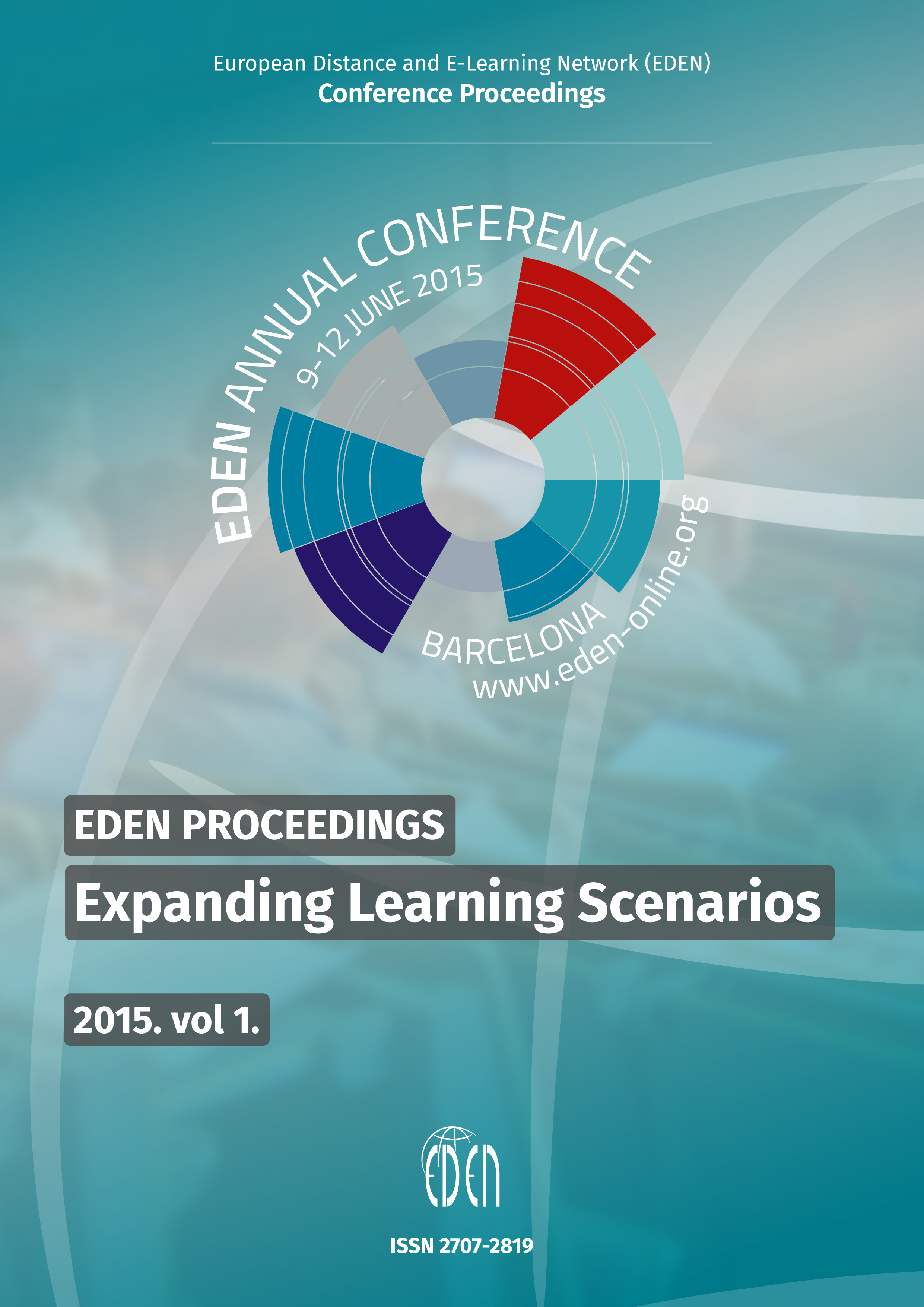Learners’ Behaviours and Autonomy in Livemocha and Busuu Online Communities
Learners’ Behaviours and Autonomy in Livemocha and Busuu Online Communities
Author(s): Maria Luisa MalerbaSubject(s): Social Sciences, Education, Higher Education
Published by: European Distance and E-Learning Network
Keywords: International collaboration and networking; Language education; Learner needs, perceptions and motivations; Lifelong learning; Non-formal and informal learning; Online learning environments and platfo
Summary/Abstract: Current Second Language (L2) learners have many different ways to come into contact with a wide range of voice applications, social networks, video-sharing websites, podcasts, wikis and blogs, and are more and more integrating the traditional bookish way of learning a language with the Web. Among the different online applications that arose with the social web, there are the so called “language learning communities” such as Livemocha (Livemocha.com) and Busuu (www.busuu.com) These communities are designed as common social network sites like Facebook (www.facebook.com) with the difference that they rely on learning content and material in the target language (TL) selected. In addition, they are designed in such a way so as to put into contact learners with native speakers from all over the world in order to exchange one’s native language with the TL. At the bases of these communities there is tandem language learning, which consists in a language partnership in which each learner is an expert of his/her interlocutor’s TL. These communities are untied to formal learning institutions, they are characterized by the absence of teachers (except for the presence of tutors in the case learners pay a fee) and the activities on the communities are structured with progressive didactic units and grammar exercises carried out consciously by learners. For all these reasons, they are a clear example of how formal, non-formal and informal spheres are intermingled. These environments designed for a potential language improvement and based on social networks raise some questions about the experience learners make in these communities. This paper, deriving from a broader study (PhD dissertation) about L2 language and social networking in Livemocha and Busuu online communities, focuses on the use that online users make of its tools and on the behaviours enacted when inhabiting the communities.
Journal: European Distance and E-Learning Network (EDEN) Conference Proceedings
- Issue Year: 2015
- Issue No: 1
- Page Range: 456-464
- Page Count: 9
- Language: English

